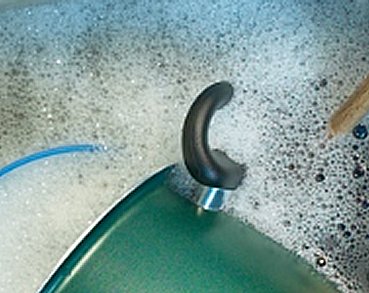Most detergents are manufactured from crude oil. Researchers around Suzanne Zibek, Fraunhofer Institute for Interfacial Engineering and Biotechnology IGB, Stuttgart, Germany, produce biosurfactants microbially, based on sustainable resources such as sugar and plant oil. They use cellobiose lipids (CL) and mannosylerythritol lipids (MEL) which are produced in large quantities by certain types of smut fungus, of the kind that can affect corn plants.
What marks biological surfactants out from their synthetic competitors is their increased structural diversity, they are biodegradable, less toxic and just as good at loosening fats. CL also has antibacterial properties.
They are costly and difficult to produce, with low yields. The scientists are optimizing the production process in order to bring down manufacturing costs. Concentrations of 16 g/L for CL have already been achieved and as high as 100 g/L for MEL – with a high production rate, too.
The next step is to separate the biosurfactants from the fermentation medium and to characterize them with the help of industrial partners, determining which surfactants are suitable for use in dishwashing liquids, which are more suited to oven cleaning products, and which are ideal for use in cosmetics. The substances can finally be modified or improved at the enzymatic level.
- Fraunhofer-Gesellschaft, Munich, Germany




